#Era Medieval
Explore tagged Tumblr posts
Text
Movimentos literários portugueses: um enquadramento global
Embora o mundo tenha sido governado por crenças, ideais, processos históricos, económicos ou culturais semelhantes ou inter-relacionados, que criaram sistemas económicos e políticos, movimentos e expressões artísticas, bem como teorias científicas que ligaram as nações entre si, todos os países terão uma história diferente; ou seja, teremos sempre um passado que nos relaciona como uma sociedade global, no entanto, o desenvolvimento que cada país tem em relação a esse passado e ao seu próprio presente nunca será o do mundo inteiro. Por esta razão, esta publicação (e as próximas sobre o resto dos países lusófonos) terá como objetivo explicar brevemente como foram os movimentos literários em Portugal, de acordo com o quadro cronológico duma literatura mundial que já foi abordada anteriormente e que, sem dúvida, inspirou cada um dos movimentos e autores portugueses.
⊱ ━━━━━━━━━━━━━.⋅ εïз ⋅.━━━━━━━━━━━━━ ⊰
Ao contrário das épocas históricas, que, em todo o caso, se encontram na história portuguesa como marco histórico mundial, a literatura portuguesa divide-se em eras e são apenas três; estas, por sua vez, dividem-se em sub-eras ou o que também conhecemos como movimentos literários.
Começaremos, pois, pela "Era Medieval":
Era Medieval (século XII e século XV):
Período compreendido entre 1101 e 1500; teve a sua primeira manifestação artística em 1140, com a formação do Estado Português. A partir dessa época, os primeiros escritores e trovadores foram João Soares de Paiva e Paio Soares de Taveirós, e o primeiro texto conhecido como literatura portuguesa foi A Cantiga da Ribeirinha de Taveirós.

No entanto, nesta época, a literatura divide-se em dois movimentos literários conhecidos como:
Trovadorismo - Primeira Época (1189-1434):
Inicia-se com a publicação de A Cantiga da Ribeirinha, em 1189, por Paio Soares de Taiverós e culmina com a nomeação de Fernão Lopes para cronista da Torre do Tombo, tempo depois, em 1434.
As manifestações literárias dividiam-se em prosa, poesia e teatro. Por um lado, na poesia havia a poesia lírica (sobre o amor e a amizade) e a poesia satírica (sobre maldizer e o ódio), que por sua vez, se dividiam em novelas de cavalaria, hagiografias, cronicões e nobiliários; no entanto, na poesia havia também as alvas (sobre a separação dos amantes), as bailadas (sobre a dança) e as barcaloras (sobre o amor ao mar). Por outro lado, no teatro havia outros tipos de representações artísticas, como os mistérios, os milagres e as moralidades.
2. Humanismo - Segunda Época (1434-1527):
Considerado mais como um período de transição entre a época medieval e a época classicista com a nomeação de Fernão Lopes como cronista em 1418. Nesta altura, as cantigas foram abandonadas e, em função disso, foi criada a Poesia Palaciana, assim chamada por ser um tipo de texto escrito exclusivamente para os nobres palacianos, que abordava temas como os costumes da corte, a lírica, a heróica e a sátira.
Neste sentido, destaca-se a obra “Cancioneiro Geral” (1516) de Garcia Resende, responsável por esta compilação de quase 900 poemas palacianos. No entanto, neste período de transição, surgem também a prosa humanista de Fernão Lopes e o teatro de Gil Vicente.
Era Clássica (séculos XVI, XVII e XVIII):
Trata-se do período compreendido entre 1527 e 1825, abrangendo um grande número de acontecimentos históricos com um largo horizonte temporal, pelo que esta época engloba diferentes movimentos literários baseados no pensamento duma sociedade portuguesa em mudança.

Esta era engloba três movimentos literários:
Classicismo (1527-1580):
Começa com a vinda do poeta e dramaturgo Francisco Sá de Miranda de Itália para Portugal, trazendo consigo o estilo renascentista aí nascido. Assim, este movimento literário foi marcado pela beleza, idealização, religiosidade, lirismo e epopeia.
Por essa razão, um dos maiores representantes do classicismo português é Luís Vaz de Camões, com seus poemas líricos e sua grande obra-prima, o poema épico Os Lusíadas (1572).
2. Seiscentismo ou Barroco (1580-1756):
Este movimento teve início com a morte de Luís Vaz de Camões em 1580, representando a morte do classicismo para toda a nação portuguesa. Desta forma, apresentava uma realidade complexa com conceitos como cultismo e concetismo, além de tratar de temas como a religião, o profano, os conflitos e os exageros.
Os autores de destaque desse período são Padre Antônio Vieira, com os seus sermões, e Antônio José da Silva, com o seu teatro.
3. Neoclassicismo ou Arcadismo (1756-1825):
Movimento fundado com a criação da Arcádia Lusitana em 1756, em Lisboa, capital de Portugal. Estabelecimento criado como uma nova escola literária onde os pensadores da época partilhavam sobre novos temas literários como o objetivismo, o racionalismo, a simplicidade, o uso de pseudónimos e a exaltação da natureza, representando-os através da poesia.
Destacam-se como autores deste movimento Correia Garção, Manuel du Bocage e António Dinis da Cruz e Silva.
Era Moderna (1825-atualidade):
A última e mais ampla época histórica de Portugal, que vai desde as revoluções, a proclamação da república e do Estado novo, as guerras liberais, as colónias e as penínsulas, a Revolução dos Cravos e, finalmente, a era da digitalização e da globalização até aos nossos dias.

Por conseguinte, é a época mais difundida em termos de movimentos literários:
Romantismo (1825-1865)
Foi um movimento literário marcado pelas perdas e sofrimentos da Revolução Francesa e das Guerras Napoleónicas, pelo que os ideais e valores mais representados foram a subjetividade, o sofrimento, o nacionalismo e a idealização.
Dividiu-se ainda em três subfases: a) o nacionalismo (1825-1840), que se inicia com a publicação do poema Camões (1825) de Almeida Garret, dando início ao Romantismo em Portugal; b) a ultrarromântica (1840-1860), tendo Camilo Castelo Branco como o seu maior expoente; e, finalmente, c) a pré-realista (1860-1870), que trouxe novos valores que se opuseram e serviram de transição para outro movimento literário, como a perda do subjetivismo e da idealização para dar lugar à crítica social.
2. Realismo (1865-1890):
Criado pela disputa entre estudantes de Coimbra, conhecidos como Antero de Quental, Teófilo Braga e Vieira de Castro, e o escritor romântico Antônio Feliciano de Castilho. Como tal, este movimento era anti-romantista e defendia o cientificismo e o objetivismo através duma linguagem formal e desprovida de sentimentalismo.
Os principais expoentes desse movimento foram Eça de Queirós e Antero de Quental.
3. Naturalismo (1875-1890):
Partilha algumas caraterísticas com o realismo, como a perda da idealização e da subjetividade, a negação do romantismo e a utilização duma escrita objetiva. No entanto, as personagens e as narrativas deste movimento procuraram dar destaque a personagens marginalizadas, dando visão a uma determinada minoria da sociedade.
Escritores como Júlio Lourenço Pinto e Eça de Queirós são os representantes preferidos deste movimento literário.
4. Parnasianismo (1870-1890):
Inspirado no movimento literário global, este foi um movimento que viveu entre o realismo e o naturalismo, que procurava a perfeição da arte, a beleza e o amor, sem incluir críticas sociais ou problemáticas. Assim, os sonetos foram a expressão artística mais predominante e os artistas mais importantes foram João Penha, Cesário Verde e Gonçalves Crespo.
5. Simbolismo (1890-1915):
Foi um movimento de oposição a todos aqueles que se baseavam no objetivismo, no cientificismo e na racionalidade, dando assim ênfase à musicalidade, à subjetividade e à transcendência da poesia.
Destacam-se os poetas Eugénio de Castro, António Nobre e Camilo Pessanha.
6. Modernismo (1915 até os dias atuais):
À semelhança do Romantismo português, este movimento também se dividiu em três subfases, conhecidas como: a) geração de Orpheu (1915-1927) com a publicação da revista Orpheu e seus maiores expoentes foram Fernando Pessoa e Mário de Sá-Carneiro; b) geração da Presença (1927-1940) com a publicação da revista Presença e seus autores mais importantes foram Branquinho da Fonseca, João Gaspar Simões e José Régio; e, por fim, c) o neorrealismo, que conjugou a representação do cidadão marginalizado com a crítica social realista e teve início com a publicação de Gaibéus, de Alves Redol, onde também se inspiraram e se destacaram autores como José Saramago.
⊱ ━━━━━━━━━━━━━.⋅ εïз ⋅.━━━━━━━━━━━━━ ⊰
Após um estudo dos diferentes tempos e épocas literárias em Portugal, tornou-se claro como estas divisões temporais e representações artísticas estão intimamente ligadas ao quadro mundial da literatura. Desta forma, coincidindo com a apresentação de movimentos como o Barroco, o Naturalismo ou o Modernismo.
Assim, e de acordo com estes dados, defende-se a ideia de que os países lusófonos partilham este passado mundial, e embora não o expressem da mesma forma, alimentam-se mutuamente para nos trazerem grandes obras e artistas.
⊱ ━━━━━━━━━━━━━.⋅ εïз ⋅.━━━━━━━━━━━━━ ⊰
Referências
Diana, D. (n.d.). Arcadismo em Portugal. Toda Matéria. https://www.todamateria.com.br/arcadismo-em-portugal/
Diana, D. (n.d.). Barroco em Portugal. Toda Matéria. https://www.todamateria.com.br/barroco-em-portugal/
Diana, D. (n.d.). Literatura Portuguesa. Toda Matéria. https://www.todamateria.com.br/origens-da-literatura-portuguesa/
Diana, D. (n.d.). Poesia Palaciana. Toda Matéria. https://www.todamateria.com.br/poesia-palaciana/
Souza, W. (n.d.). Literatura portuguesa. Mundo Educação. https://mundoeducacao.uol.com.br/literatura/literatura-portuguesa.htm
Souza, W. (n.d.). Literatura Portuguesa. Português. https://www.portugues.com.br/literatura/literatura-portuguesa.html
#art#poesia#poetry#literature#portuguese#português#universidad#university#aprendizagem#escritos#história de portugal#Portugal#1800s#Era Medieval#Era Clássica#Era Moderna
1 note
·
View note
Text
That time Crowley was a jester and Aziraphale a minstrel…….

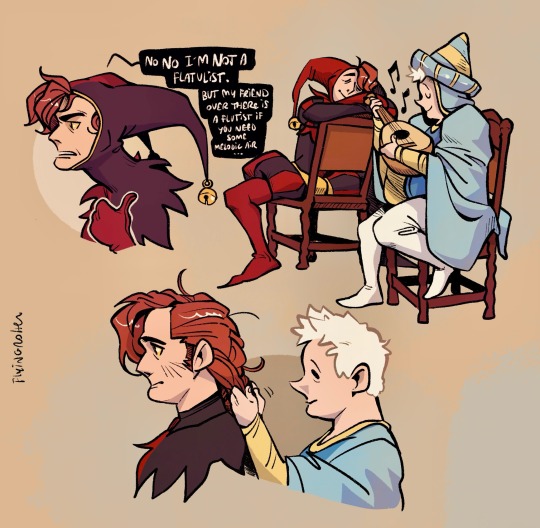
#good omens#aziraphale#crowley#aziracrow#ineffable husbands#medieval era#jester#minstrel#illustrator#procreate#digital art#my art
10K notes
·
View notes
Text


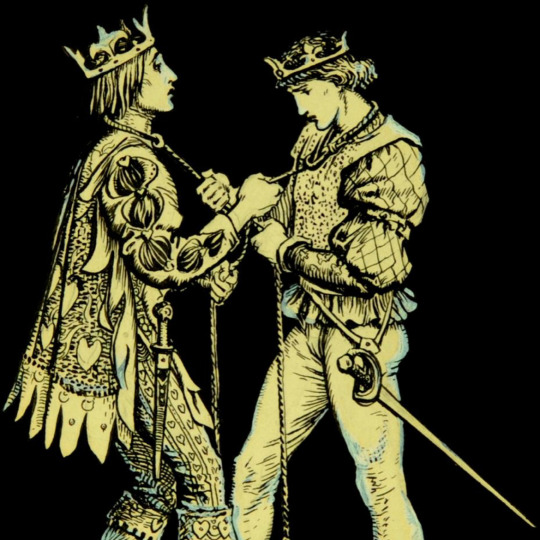
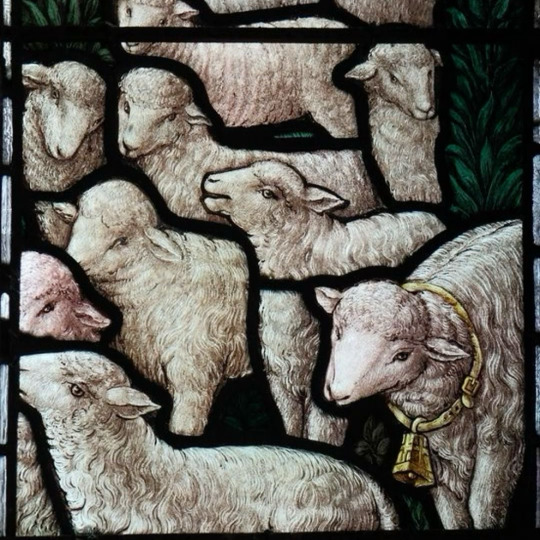


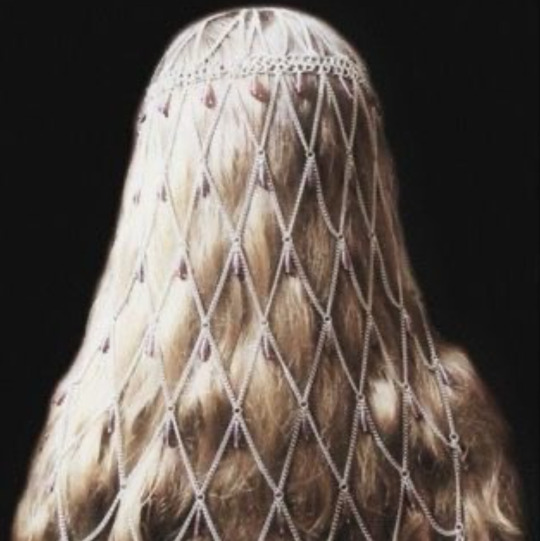
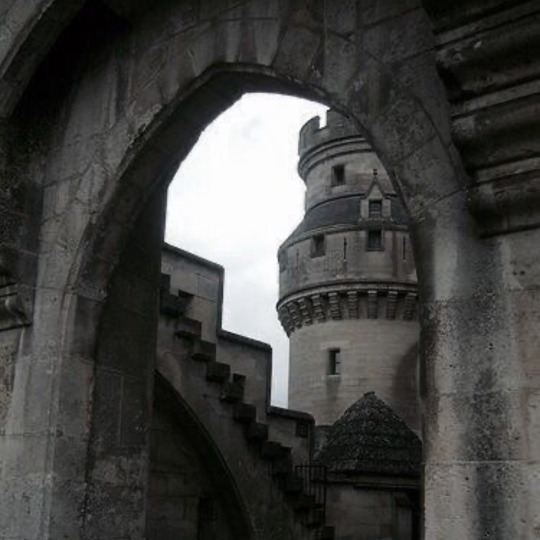

“i desire violently—and i wait”- Anaïs Nin
#medieval#old art#art history#knight#medieval times#medieval era#medieval art#medieval aesthetic#medieval armor#medieval ages#medieval animals#medieval period#medieval tradition#mood board aesthetic#moodboard aesthetic#moodboard#medieval illustration#medieval painting#medieval style#medieval setting#medieval fantasy#medieval history#medieval knight#medieval core
497 notes
·
View notes
Text

Me: I play in a serious campaign The campaign:
I've spent a whole weekend turning this medieval art meme into a BG3 meme featuring my team in Act 1
Traditional art. Mixed media on A4 paper, yes, including the writing that I translated into old English. My brush and patience failed me in the end but after scanning it, it looks authentic so I kept the writing.
There are gold acrylic parts that shine on paper, like the clouds, the details on Astarion's leather armor, flag, parts of the sword and castle. Its so cute when the clouds shine while moving the paper!
#my art#baldur's gate 3#bg3 memes#shadowheart#astarion#bg3 tav#the way the intellect devourer would fit in medieval art...#I had that meme saved on my phone for months#ivy's bg 3 era#I've listened to bardcore remix almost the whole time. I need air
1K notes
·
View notes
Text

𝕽𝖊𝖛𝖎𝖛𝖆𝖑
#renaissance#medieval#victorian#victorian gothic#accessories#fashion#medieval aesthetic#necklace#earrings#medieval art#gothic fashion#gothic style#gothic#goth#goth aesthetic#goth girl#gothic art#dark academia#dark aesthetic#modern renaissance#renaissance art#renaissance inspired#revival of adornment#artists on tumblr#victorian goth fashion#victorian inspired#victorian era#goth bride#royalcore aesthetic#royalcore
334 notes
·
View notes
Text

~ John Byam Shaw, "Hist! -- said Kate the Queen," from Poems by Robert Browning (1897)
via internet archive
#john byam shaw#art#illustration#vintage illustration#book illustration#robert browning#victorian#victorian era#victorian art#victorian aesthetic#pre raphaelite#golden age of illustration#illustration art#vintage aesthetic#mediaeval aesthetic#medieval aesthetic#renaissance aesthetic#dark academia#dark academia aesthetic#classic academia#romantic academia#light academia#light academia aesthetic#1890s#1890s art#1897#e
257 notes
·
View notes
Text
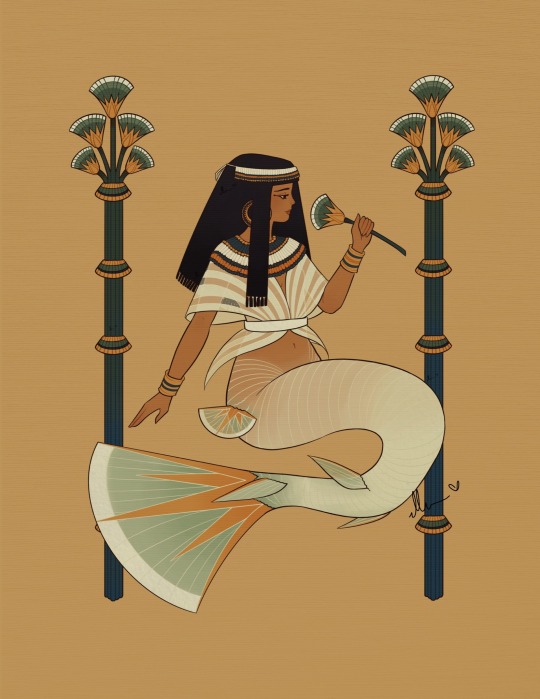


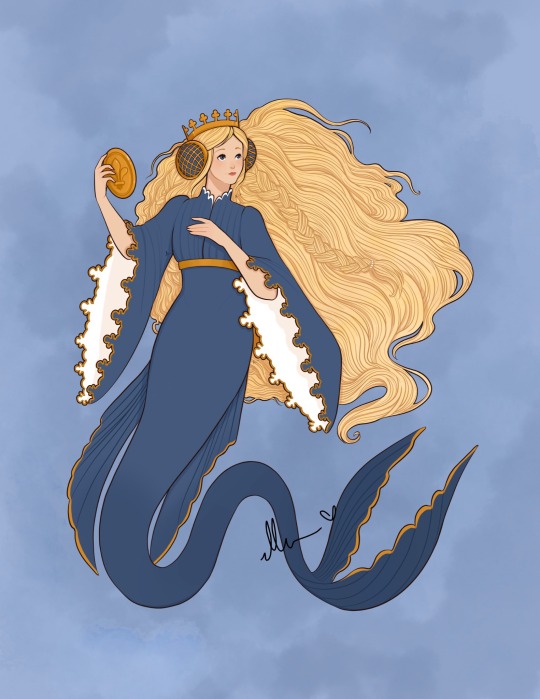
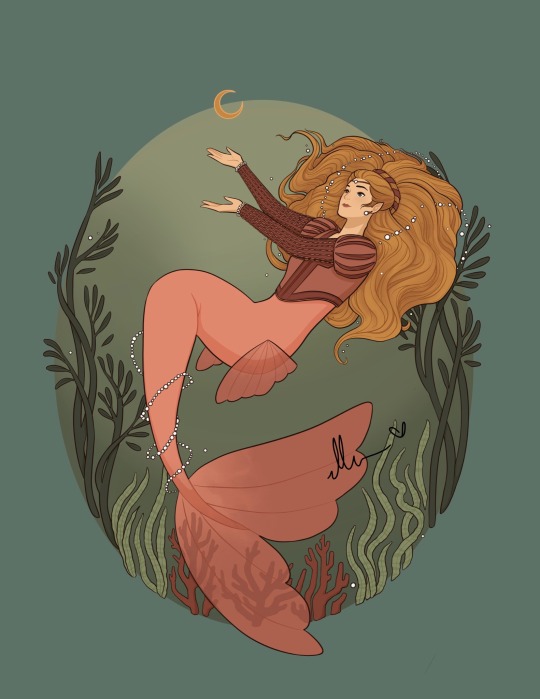
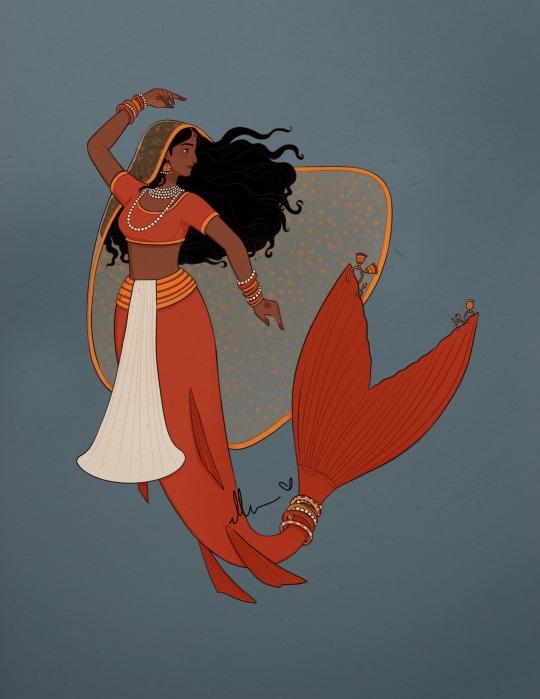
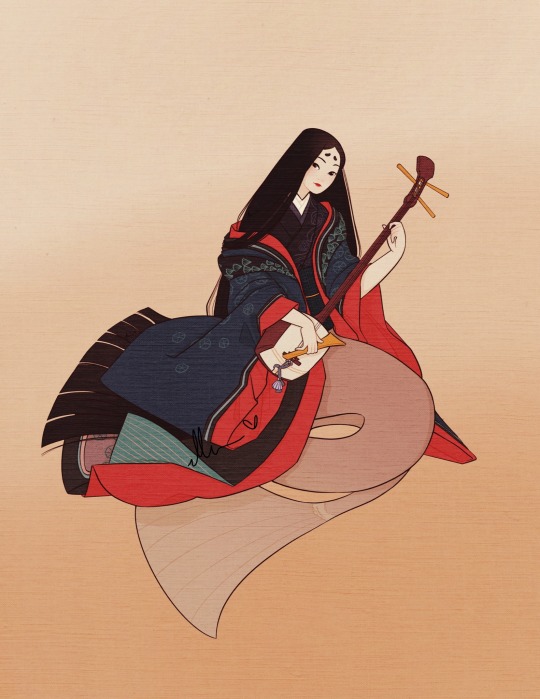

All the Historical Mermay’s together!
I had a lot of fun with this mermay prompt list by chloe.z.arts and they turned into a pretty cool collection of illustrations!
Prompt list by chloe.z.arts on instagram.
I am the artist! Do not post without permission & credit! Thank you! Come visit me over on: instagram.com/ellenartistic or tiktok: @ellenartistic
#historical mermay#mermay 2023#collection of mermaids#lnart#ellenart#historically inspired#historical fashion#it’s gonna be mermay#ancient egypt#ancient greece#tang dynasty#french medieval#italian renaissance#mughal empire#edo period#late victorian era
4K notes
·
View notes
Text
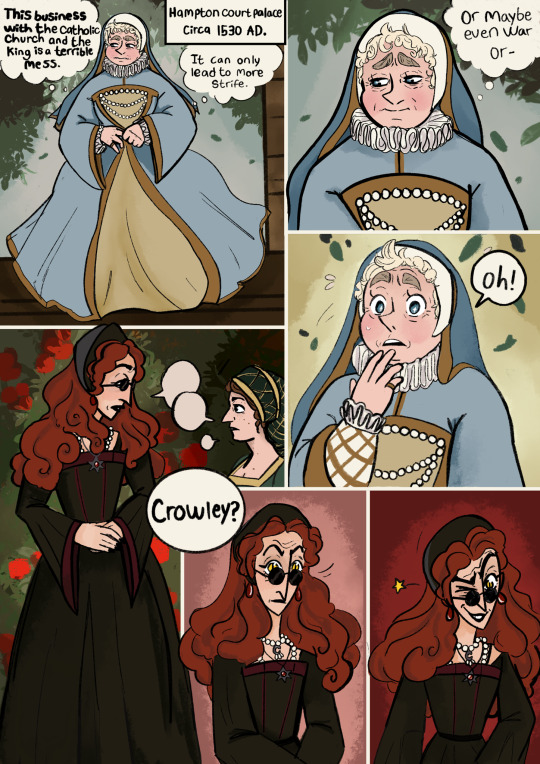
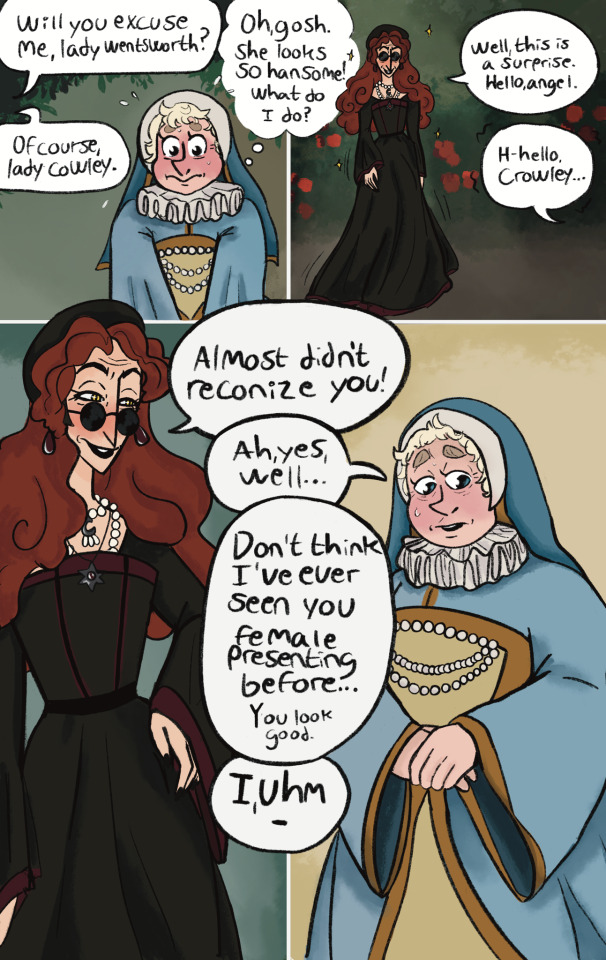
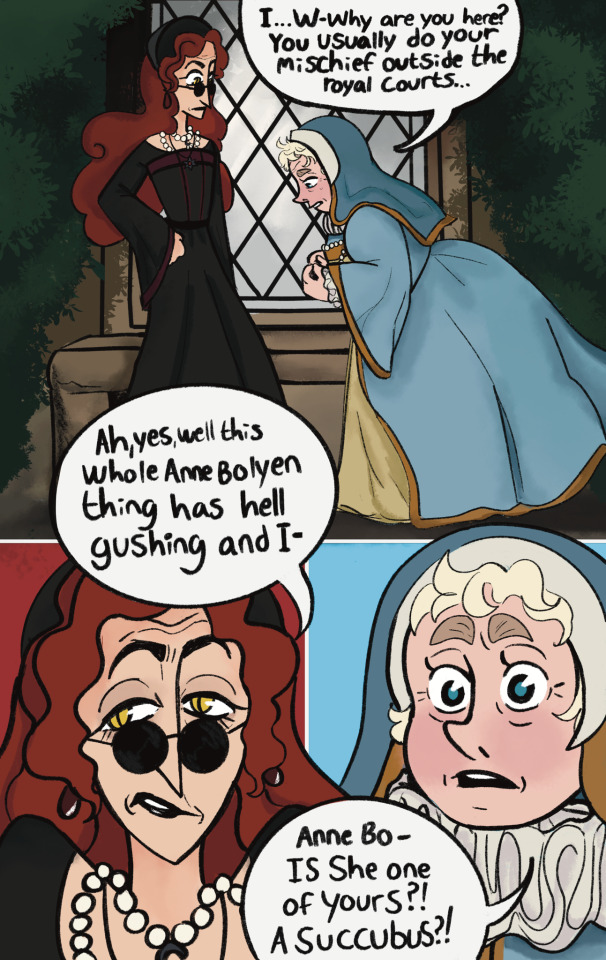
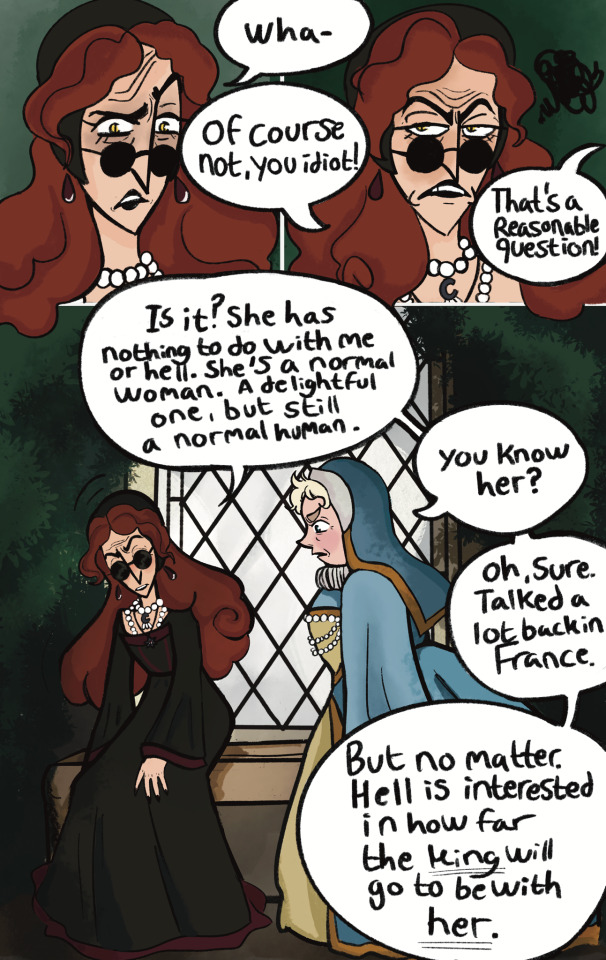

But It’s Pretty… a Good Omens comic (Part 1)
Part 2
#John Mulaney voice: I think Aziraphale is a lesbian.#good omens#crowley#aziraphale#ineffable spouses#aziracrow#my fanart#ineffable wives#fem!crowley#fem!aziraphale#tudor era#the girls that get it get it#y’all like medieval history? and lesbians??#comic: But It’s Pretty…#good omens comic
1K notes
·
View notes
Text










🪭🪞🏰🕯️🗡️🗝️
#medieval women#medieval era#medieval revival#medieval princess#medieval armor#medieval aesthetic#medieval spawn#medieval style#medieval fantasy#medieval fashion#medieval#divine female#fantasy#fairy tales#fairytale#whimsical
232 notes
·
View notes
Text
Princess!reader, who waited so long for her best friend, Sirius, to get back from war. She spent every night picturing him, how he'd look when he came home, if he'd still smell like the same boy she fell asleep against in the orchards..
She was so excited the day she got a letter from him. He was finally coming home. The war was over. He was victorious, and he couldn't wait to see her.
Only, when he came home, he wasn't alone. She didn't realise it at first. Sirius was all she could focus on, the way he swept her up in his arms, his muscles bigger than the last time she'd seen him. She didn't even register where he was taking her until he set her down on the bed.
Innocent and confused, she looked up at him, waiting for him to speak, to tell her all about his travels, the battles he fought.. but he didn't, and then she heard it.
The door closed, but sirius was already inside. When she glanced over, she nearly screamed. A tall, tan, scarred man stood by her door, with mousy brown hair and sword resting on his hip.
That's when sirius finally spoke. He glanced at the man before returning his attention to her.
"This is my friend. We fought together. You don't mind him being here, right?" He smiled, and her stomach flipped. She'd always loved the way he'd grin at her, too pure to notice how it's changed from the sweet, innocent smile he had as a child, to something darker, smirking down at her with something other than merely happiness.
She was nervous. She'd never been around a man like the one who stood by her door, but she trusted sirius. He'd never hurt her. He just spent a year in a foreign country fighting a war for her father, the king.
She couldn't help but feel a strange sensation in her tummy, though. She didn't know this man, even if sirius did. Her father had told her never to be alone with a man, that she always needed someone to supervise, but it was just sirius.. and his friend..
He was so big, and he had a look on his face that the Princess had never seen before. Sirius had gotten bigger, too. She felt how much stronger he'd gotten when he picked her up. His arms had nearly doubled in size, and his chest was firmer.. He wasn't just pretty anymore..
He was manly now, and it made her feel things, things she'd felt once or twice before, but never this strongly..
Part two?? (Pt.2 will contain smut if I write it!!)
#cassie yaps !! ☆▪︎☆#marauders#sirius black#harry potter#harry potter fandom#harry potter fanfiction#marauders fanfiction#marauders era#marauders medieval au#knight!remus#knight!sirius#princess!reader#royalty au#knight au#marauders smut#remus lupin x reader#sirius black x reader#sirius black x remus lupin#wolfstar#fantasy!wolfstar#wolfstar smut#wolfstar x reader#poly!wolfstar#poly!wolfstar x reader#wolfstar x reader smut#sirius black smut#remus lupin smut#sirius x remus#sirius x remus x reader
131 notes
·
View notes
Text




#medieval art#medieval weapons#medieval history#medieval knight#medieval#knighthood#knight#chivalry#plate armor#armor#full plate#medieval architecture#medieval peasant#medieval period#medieval era#medieval armor#medieval moodboard#moodboard#aesthetics#medieval aesthetic#historic architecture#historical#history#ancient history#ancient#medieval fantasy#medieval fashion#castle#castles#medieval castle
154 notes
·
View notes
Text
fic where james goes a little wittle bit batshit insane and makes a cult dedicated to sirius and sacrifices virgins while sirius sits on his silly little throne made of bones and drinks james' blood out of a goblet
#the virgin is regulus and james performs medieval torture on him because it makes sirius laugh#mauraders#dead gay wizards from the 70s#moth's own#the marauders#marauders era#marauders#the marauders era#sirius black#hp marauders#sirius orion black#james potter#james fleamont potter#sirius black x james potter#james potter x sirius black#sirius x james#james x sirius#sirius black and james potter#james potter and sirius black#sirius and james#james and sirius#prongsfoot#bambibelle#jirius#james loves sirius#everyone loves sirius
169 notes
·
View notes
Text
arranged marriage







Pairing: King!Michael Jackson x Queen!fem!reader
Synopsis: (Medieval AU) On your wedding night, nerves consume you as the weight of expectation looms—everyone awaits confirmation that the union has been consummated.
Tags: arranged marriage, traditional expectations of marriage, mild smut, allusion to virgin!reader, multiple orgasms for reader, none for mike :(, clit stimulation.
Word Count: 675
Requested: yes/no
Author’s Note: y'all i tried my best to make the dialogue sound as medieval as possible. Don't judge pls, English ain't even my first language.
Links: navigation | masterlist | taglist

The great hall had been brimming with the scent of celebration, the echo of merriment ringing through the stone walls long into the night. Yet now, in the quiet of the royal chambers, it was just you and your new husband—King Michael, a man you had not even met before the grand ceremony that bound you together.
The weight of expectation pressed upon your chest. Every eye had been on you throughout the day, and now, even behind closed doors, you felt the eyes of the kingdom upon you. The consummation of the union was tradition, and you knew they waited, whispering, for proof of your duty.
Your cheeks burned as you glanced at him—regal, tall, his warm skin glowing in the dim candlelight. His presence was commanding, his every movement steeped in grace. You felt small under his gaze, shy and uncertain, your trembling hands clutching the edge of your gown.
“You need not tremble, my dear,” he said, his deep voice soothing, full of tenderness. He took a slow step toward you, his eyes gentle. “This night need not be a trial.”
You swallowed hard, glancing down. “I… I know what is expected, your Majesty,” you murmured. “I would not have them think I shirk my duty…”
Michael tilted his head, a soft smile gracing his lips. “And what care I for what they think? Our chambers are our own.”
He took your hand, his touch warm and reassuring. “Do not fret,” he whispered, his lips brushing the shell of your ear. “Tonight shall be solely about you.”
Your breath hitched as he guided you to the edge of the bed. He did not tear at your gown or demand more than you could give. Instead, he knelt before you devotedly, his hands steady as they rested against your quivering thighs. His fingers moved with care, lifting the hem of your silken skirts, not in haste but in reverence.
“I shall not undress thee fully,” he said, his voice low and earnest. “This night is thine, my queen. Let me show thee tenderness.”
Your body tensed, but he only caressed your thighs, his thumb stroking softly. Slowly, he let his fingers trace their way to the most sensitive part of you. His touch was purposeful, yet impossibly gentle, circling your sensitive pearl until your breaths came faster and your voice broke into soft mewls.
“There,” he murmured, his tone like velvet. “Do not fight it. Let go for me, my beloved.”
The night passed not with the fulfillment of others’ expectations, but with his quiet worship of you. His fingers worked tirelessly, coaxing pleasure from you again and again, until your body trembled and your cries filled the chamber. He sought nothing in return, only watching your every reaction with a look of pure devotion.
—
The morning light brought no relief to your anxiety. You could hardly bring yourself to leave the sanctuary of your chambers, your mind tormented by the thought of judgment. You had failed to do your duty—or so you thought.
Yet, as you stepped into the hall, you were met not with scorn or whispers, but warm smiles and respectful bows. Your ladies-in-waiting curtsied, their expressions almost conspiratorial.
You caught Michael’s eye across the room. He stood tall and composed, yet his dark brown eyes softened when they met yours. He approached, taking your hand as though no one else existed.
“How…?” you began, your voice barely above a whisper. “Do they not know?”
He leaned in, his lips brushing against your soft cheek. “What passes in our chamber is ours alone,” he murmured, his voice low enough that only you could hear. “Let them believe what I want them to. It is no one’s business what a husband and his wife choose to share.”
Your heart swelled at his words, the shame you’d carried melting away in his warmth. His arm around your waist was as solid as his promise, and as he nuzzled closer, you felt, for the first time, the true safety of belonging to him.

© michaelsfavgirl 2025
Taglist: @theladyinmoscow @yeriminist @yeaiamme2 @helloaugustmoon @cinnamoncunt @theladyofmylife @minekarina @kionaaa @theskinniestjackson-denny @leociinta @graciegizmo3184 @theasexual-jackson @mrsmikaelsxn @fallinlovewithevil @armasbw @b3rk1ey @sirusxx @maybe7tommorow @falllovesomemichealjackson @virgomjj @michaels-nonbinary-child @veavixen @elthoughtzos @kingayanna @kaoritowa @callsignwidow @valeriaruins @writtenbychris @yunkilm @blackynsupremacy @moonwalkerdiana
#kate's writing#king!michael#middle ages#medieval au#michael jackson#michael jackson x reader#michael jackson x fem!reader#king of pop#smut#fanfic#fanfiction#x reader#blurb#headcanon#drabble#one shot#michael jackson imagine#mjj#fluff#off the wall era#thriller era#bad era#dangerous era#history era#invincible era#this is it era#mature era
145 notes
·
View notes
Text
i love knights sooooo fucking much . sorry back on tumblr bc while agonizing over having to read vita nuova i forgot i’d also get the luxury of reading occitan poetry / reading about knights in general who <3 as u may know are my most beloveds forever… and i was so deeply reminded of why i adore them just now because knights irl were literally just contractually obligated servants of the king and church as part of the feodal system but they have been romanticized forever and ever. since the medieval ages, and even now!!!! we fantasize over this falsified / romanticized idea of noble, righteous knights, or knights as forbidden lovers of the queen (<- like in medieval poetry) and ohhhh it’s just so fucking good . they were pawns !!!!! crusaders!!!!!! but in fiction they’re so radiant and charming. lovers and killers and protagonists . i love it i think it’s the tastiest thing ever and the reason i can’t ever stfu about knighthood as a concept is because the fiction it has birthed is so upsettlingly good and fun to dig into — knighthood as a curse that masquerades as a badge of honour, knighthood as an unattainable ideal, knighthood as good men being ruined and soiled and broken under the boots of the system….. as good men doing everything everything they can to please the king and god and the people and failing themselves in the process. god i love knights
#ok yap time over . only a little bit of this presentation left then im done for today !!!!!#but godddddd i was rlly so sad abt the boring lit that i forgot . i actually love the medieval era of literature a LOT lmao#i have hyperfixated on the arthuriana for years and years but god knights in general . as a fictional concept taken from reality#is sooooo . so good#AND I LOVE OCCITAN POETRY …… i know there’s a better word for it but idk the english counterpart lol#i love that knights are so deeply connected to religion as a concept and yet also written into forbidden romances#the people yearn for . yearning ….. always have …..#does this rant make sense at all btw . LMAO#im just yapping but god i fucking love u knights#ari noises ✩
96 notes
·
View notes
Text
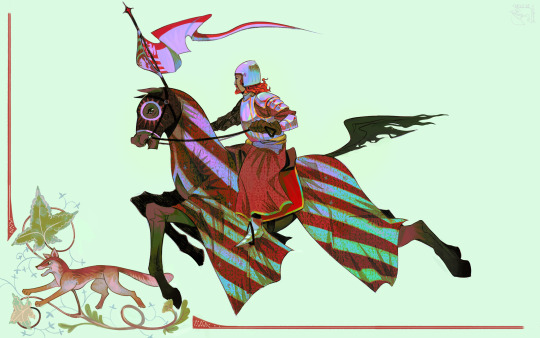
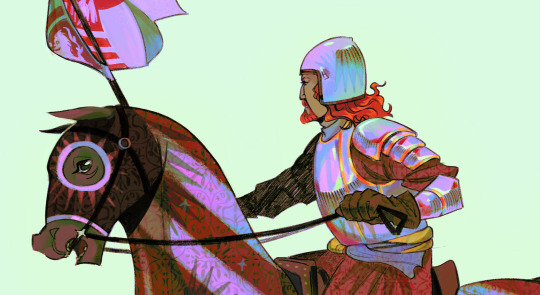
Sigismund of Luxembourg aka the Red Fox his design in KCD is 👌
alt version and lineart
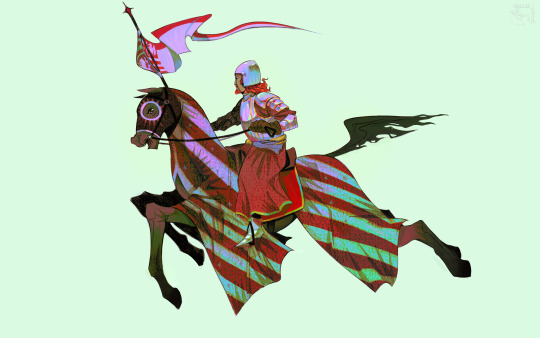
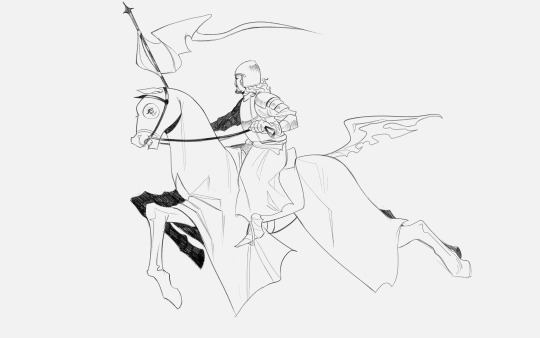
#art#kingdom come deliverance#kingdom come deliverance fanart#kcd#kcd fanart#still in my medieval era
371 notes
·
View notes
Text
frequently what happens is I'll be drawing a comic and think, huh. I wonder what shoes a 14th/15th century cardinal would wear. I bet they had fancy rules about it, and the answer will be in a 500 page book about the early modern cardinal. I'll think, 'WELLLLLL since I'm already here, I'll check out this other chapter that sounds interesting,' and then I'll find out that the vatican is literally hazardous to your health, but from that point on I'll be locked in for the entire book. I'll start reading through all the citations while checking to see what else some of the contributors have written. the comic has been forgotten entirely because I need to know more about the hats.
#my folder on the knights templar and other military-monastic orders is MASSIVE because i keep spiralling into other areas of#research. same with the cardinals. i will Keep Going until i hit an insurmountable wall#i have like. several books about syphilis in the medieval/renaissance era because i disagreed with something someone said#and then had to follow that up with reading about malaria throughout history#i may have to actually learn latin for this one and. well! if i must. then i will#i wont be happy about it but i'll do it (<<< someone who absolutely does not have to do this in the slightest)
273 notes
·
View notes